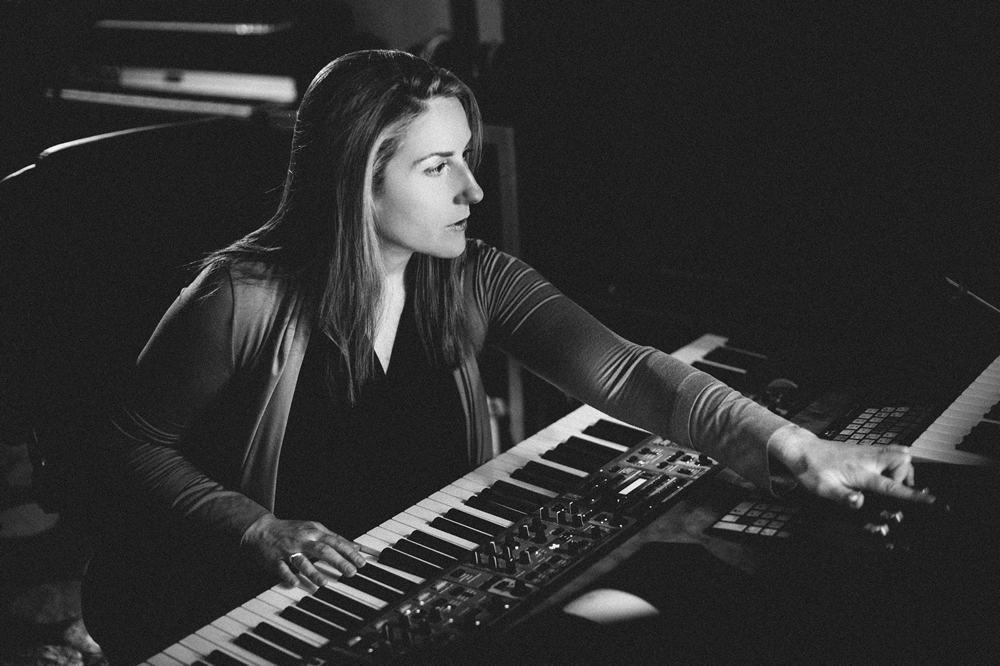We have asked our interviewees to select five tracks from various scores that they think are interesting, forward-thinking or even underrated. There are no limits to which tracks our interviewees can choose; the aim is to give you, readers, a real glimpse into the composer’s tastes and musical identity.
Ronit Kirchman is one of the industry’s most accomplished and versatile composers. Her broad stylistic palette, musical talent and creative collaboration has allowed her to build an impressive career, from singer songwriter to film composer. Most recently, Kirchman composed the score for the thrilling USA Network show The Sinner. Earlier this month, the composer provided Score It Magazine with an insight into her diverse and electrifying career. Here, she shares with us a few of her favourite scores. These choices, much like her career, range in style and genre—from the scifi thriller Alien to the Indian comedy Moonsoon Wedding.
Ronit Kirchman: “It’s a daunting exercise to pick just 5 tracks, when there is so much amazing music to choose from, so I’ll call these my score picks of the day! Presented in no particular order…”
- “The Cannery (Main Title)”—Thomas Newman (from In The Bedroom by Todd Field, 2001). Opening titles serve as a gateway to the rest of the film. From the very first moment, this theme captivated me completely. It’s totally original, intense, beautiful, striking, emotionally complex, and full of life. It made a deep impression on me when I first heard it in the movie theater, and I have always remembered it. Listening to it now, it feels just as bracing and relevant as ever.
- “Amazing Grace (traditional song)”—sung by Meryl Streep (from Silkwood by Mike Nichols, 1984). Sometimes a song creates the most powerful impact. One of the most devastating and moving film endings I’ve experienced is the one in Silkwood. It’s due to the combination of the song choice and lyrics; Meryl Streep’s heartbreaking, simple yet subtle vocal performance; and how the song relates to the picture and the narrative of the whole film. You get a feeling which is both ghostly and still very much alive, expressing so much of the pain, struggle, and beauty of Karen Silkwood’s life, and of a vital soul leaving the earth. It haunts you well after the film has ended.
- “The Alien Planet—Jerry Goldsmith” (from Alien by Ridley Scott, 1979). I love the instrumentation for this score and this piece in particular. Each instrument and gesture is there for a reason. It’s a somewhat sparse landscape which makes great use of extended acoustic techniques and very specific electronic sounds and effects. There’s actually negative space to enjoy inside of this cue, which lets you appreciate each element. In the swell at the end, too, every moment counts–each cumulative shift within the crescendo makes it feel connected and exciting.
- “The Ways of the Force”—John Williams (from Star Wars: The Force Awakens by J.J Abrams). The Force is always with John Williams! I’ve selected this piece of music, written for the battle between Rey and Kylo Ren, because I enjoy its virtuoso transitions and pivot moves, rich harmonic language, shades of mood, and effortlessly applied orchestral colors. It takes you on an exciting ride in just over three minutes. This is the original cue that John Williams wrote for the scene, which appears on the soundtrack.
- “Aaj Mera Jee Kardaa [Today my heart desires]”—Sukwinder Singh, (from Monsoon Wedding by Mira Nair, 2001). The whole soundtrack from Monsoon Wedding is a musical feast, and this is one of my favorite tracks. I love how the underscore and songs are integrated in this film. Aaj Mera Jee Kardaa is just exploding with joy, with awesome musical performances and an organic use of electronics. Paired with the vibrant, energetic picture, it sends you into a whirl of delight.



